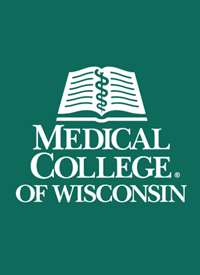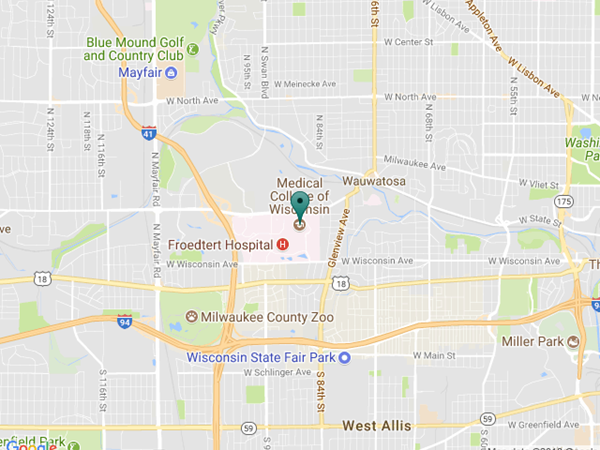MCW Emergency Medicine Fellowship in EMS
The MCW Department of Emergency Medicine’s EMS fellowship is designed to provide the fundamental knowledge and skills required for a physician to serve as an EMS physician and medical director.
The fellowship curriculum follows the core curriculum and requirements as approved by the American Board of Emergency Medicine, Accreditation Council for Graduate Medical Education, and National Association of EMS Physicians.
EMS Fellowship Overview
Our curriculum consists of both didactic and experiential components. Fellows attend weekly conference that cover key concepts in EMS medicine. They also participate in EMS medical direction activities under the supervision of one of our board-certified faculty. The fellows spend a considerable amount of time in the field with system paramedics. This includes training to operate our EMS physician vehicle, which allows for field response to EMS calls. The curriculum provides for graduated responsibility, providing the fellows increasing levels of independence as they meet milestones and gain experience during the year.
In addition to gaining a solid competency in the core requirements, the MCW EMS Fellowship is flexible to meet the unique interests of our learners. After completion of the fellowship, the Medical College of Wisconsin offers other opportunities to gain additional analytic and translational skills through programs for Masters in Public Health, Bioinformatics, Clinical Translational Sciences, and others.
Why Choose MCW?
One of the main reasons our fellows cite for choosing MCW is the sheer variety of EMS experiences and expertise. Whether it is working with one of the largest EMS systems in the country or engaging with volunteer providers in rural EMS, joining helicopter, tactical, high rise, dive, rescue boat, or hazmat EMS teams, traveling to countries around the world to provide EMS advice, mass casualty and event medicine, or research and administration, MCW’s fellowship has it all. Our fellows are able to experience it all, emerging as well-rounded EMS physicians ready for whatever opportunity may arise.
MCW has a long history with EMS since the early 1970s when we were awarded federal block grant funding along with local and county partners to establish the first paramedic ambulance service in the state of Wisconsin. The rest, as the cliché goes, is history. Over the subsequent four-plus decades, as both the specialties of emergency medicine and EMS evolved, we have been instrumental in the training of EMS physicians, the creation of evidence-based and outcomes-driven care and in the conduct and publication of landmark research through broad, multi-centered, NIH funded consortiums. We have strong relationships with local, regional, national and international partners which improves the networking and experiences for our fellows. Since the 1990’s, we hosted dozens of physicians from 6 continents for EMS physician development – a history that we continue today.
MCW is a great place to work and has resources to support and develop the EMS physician in all areas both professionally and personally. In addition to EMS practice, the fellow’s clinical practice supporting primary board certification includes a tertiary-care academic medical center, community hospitals and free-standing emergency departments. Opportunities for moonlighting are included as allowed by the ACGME.
EMS Fellowship Program Details

Reasons to live in Milwaukee
Meet Our Team

M. Riccardo Colella, DO, MPH, FACEP
Professor; Division Chief, EMS Medicine; State of WI EMS Medical & Trauma Director

Matt Chinn, MD
Associate Professor; Senior Medical Director, Froedtert Emergency Department; Medical Director, Froedtert Observation Unit

Thomas Engel, II, MD
Assistant Professor; Assistant Medical Director, Milwaukee County Office of Emergency Management

Thomas Grawey, DO
Associate Professor; EMS Medical Director, Gateway Technical College; Medical Director, City of Kenosha Fire Department; Assistant Medical Director, Milwaukee County Office of Emergency Management; Associate Program Director, EMS Medicine Fellowship

Timothy Lenz, MD, MPH, EMT-P
Associate Professor; Director, EMS Medicine Fellowship Program; Director, Medical Services LifeNet McHenry

Jason Liu, MD, MPH, FAEMS
Professor; Medical Director, EMS Disaster/Emergency Preparedness

Keith Mausner, MD, FAAEM
Adjunct Associate Professor; Medical Director, Flight For Life

Ben Weston, MD, MPH, FAEMS
Associate Professor, Division of EMS Medicine, Department of Emergency Medicine; Chief Health Policy Advisor, Milwaukee County; Chief Medical Director, Milwaukee County Office of Emergency Management
Contact Us
Questions? We would love to hear from you.
Mailing Address/Physical Location
Department of Emergency Medicine
Medical College of Wisconsin
Hub for Collaborative Medicine
8701 Watertown Plank Rd.
Milwaukee, WI 53226
Fellowship Coordinator
Janice Hinze
_emfellowships@mcw.edu
Administrative Office
(414) 955-6450
(414) 955-0082 (fax)






